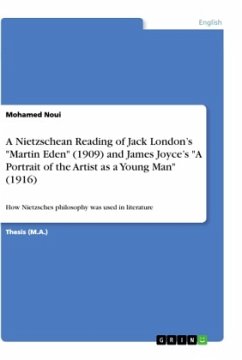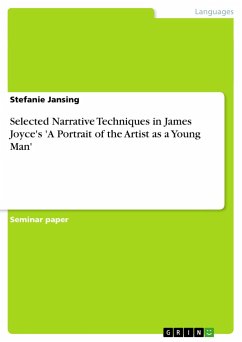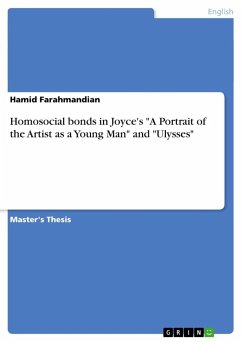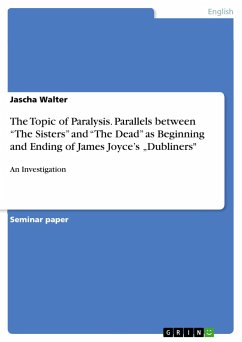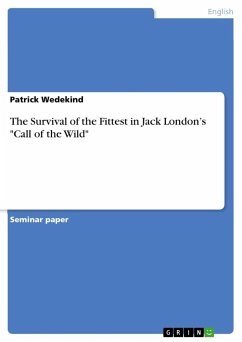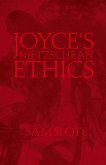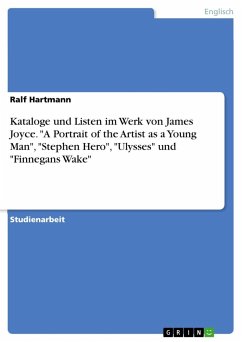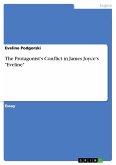Thesis (M.A.) from the year 2015 in the subject English Language and Literature Studies - Literature, grade: master, , language: English, abstract: This study is about the reception of Nietzsche's philosophy in the Irish and the American literature, and the novels selected for this study are Jack London's "Martin Eden" (1909) and James Joyce's "A Portrait of the Artist as a Young Man" (1916).These two novels are chosen from different cultures in order to see how Nietzsche's ideas were fictionalized in different cultural contexts. Therefore, the aim of this dissertation is to make a comparative study of the two novels written by jack London and James Joyce, in view of Nietzschean philosophy.Despite many critics that attacked Friedrich Nietzsche and his philosophy, the German philosopher was a very influential thinker and was considered as the prophet of the 20th century as Phil Fernandes described him, Nietzsche's ideas can be found nearly in all of the literary works written in the late 19th century and early twentieth century. Many writers from different countries and cultures in the world used Nietzsche's ideas in their works either to show its utility or to criticize it.The revolting character is related to the "Bildungsroman", since the "Bildungsroman" experienced a parallel change with the modernist hero. Characters started to isolate themselves from society; the plot in the "Bildungsroman" changed and paved the way for the characters to confirm their individuality without following the conventional values. A short summery of the "Bildungsroman" may be helpful to understand its relation with the progress of the Nietzschean characters in "Martin Eden" and "A Portrait of the Artist as a Young Man".

